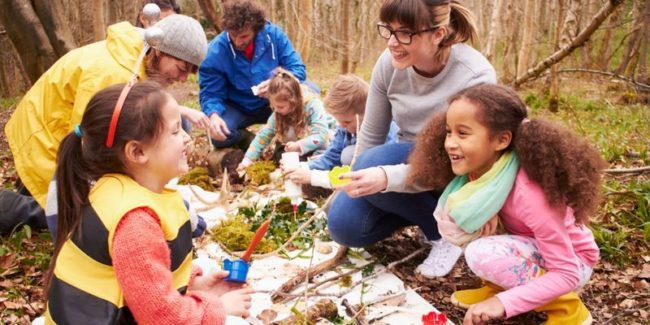ABSTRACT
Although gender gaps associated with K-12 science achievement have narrowed significantly, gaps in science engagement and efficacy in childhood likely explain why women remain underrepresented in science careers. Early intervention programs may address root causes of gender gaps in science careers. Outdoor science education (OSE) is one understudied but promising strategy, that provides ample opportunity for reform-based instructional practices that may benefit girls, including girls of colour. Using a pre–post, treatment-control quasi-experimental design, we evaluated how an OSE program differentially impacted the science grades, science knowledge, and science self-efficacy of fifth grade girls versus boys (n = 640). We found the OSE treatment increased knowledge and maintained science grades for girls while grades fell for girls in the control group. We also found that science self-efficacy decreased for both boys and girls in the treatment group. We did not detect direct or interaction effects of race on science outcomes. Research suggests OSE may help students associate science learning with challenge, which may help explain the decrease in self-efficacy coupled with the increase in achievement for girls. We suggest future research continue to investigate how OSE can benefit all students, including those who may become disengaged with learning in traditional classroom settings.
Read the Research
References:
,Rachel E. Szczytko,Sarah J. Carrier &M. Nils Peterson


 https://orcid.org/0000-0002-5577-5861
https://orcid.org/0000-0002-5577-5861